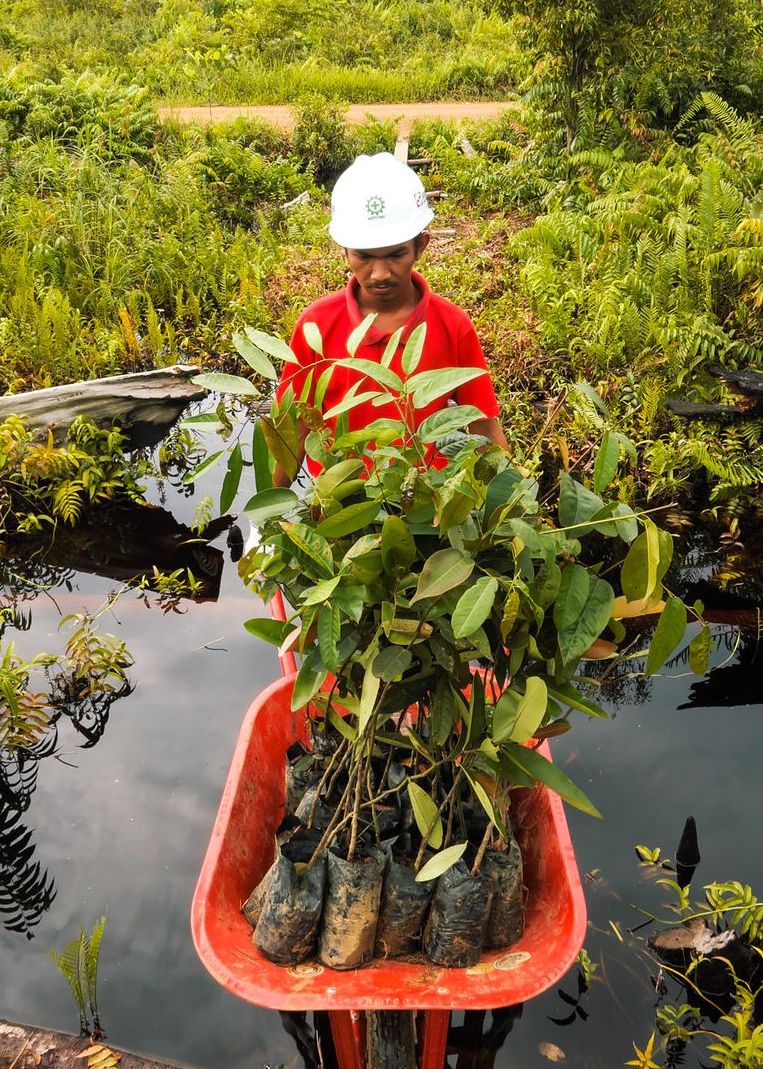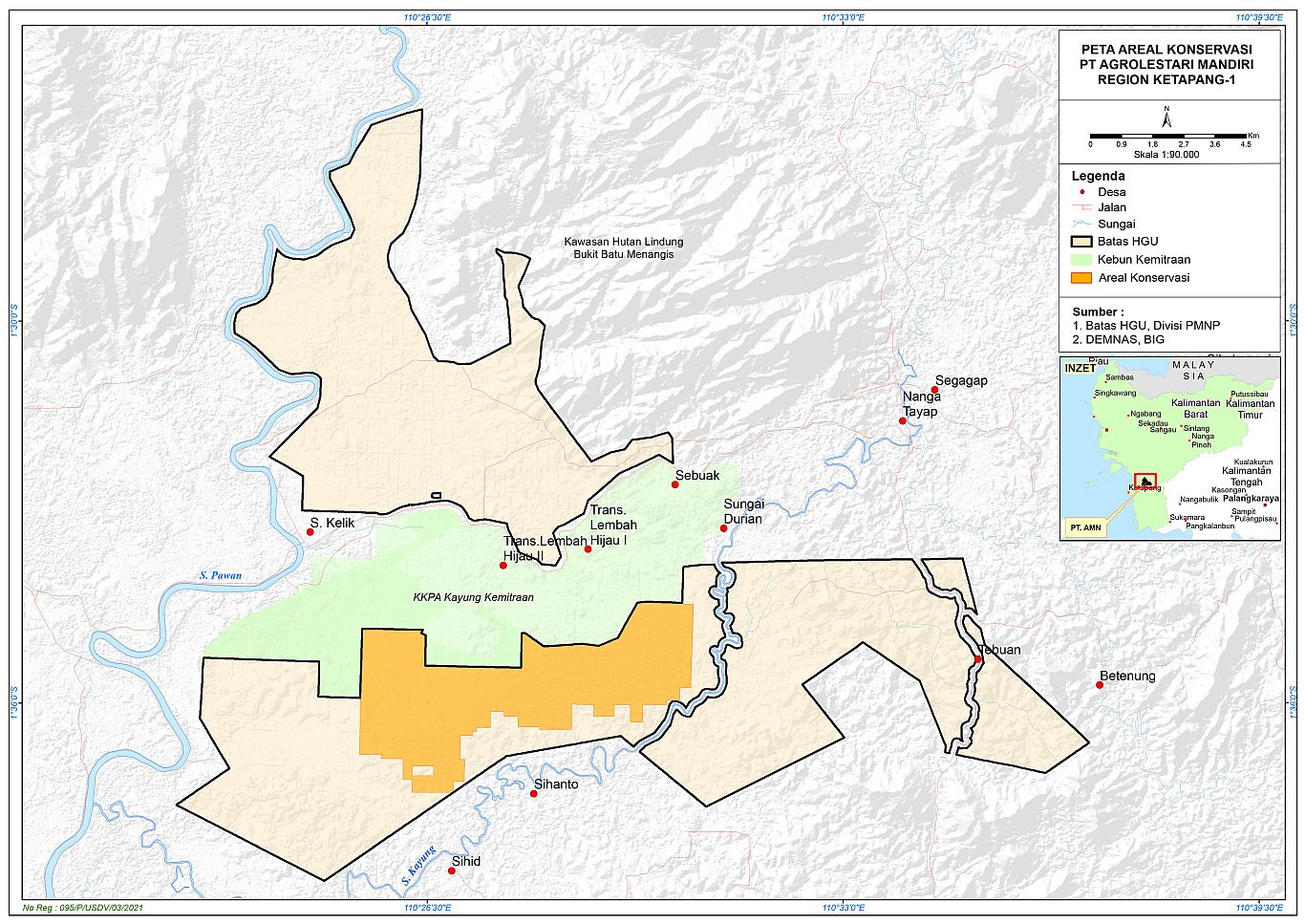Why we care about peat rehabilitation
Peatlands are a type of wetland, formed through the accumulation of partially decayed vegetation or organic matter in waterlogged conditions. Peatlands are important because they contain twice as much carbon as all the world’s forests, and are incredibly biodiverse.
Indonesia, where most of our operations are based, is home to large swathes of tropical peatlands and some of the deepest peat areas globally. Through the conservation and restoration of peatlands in our concessions, GAR aims to reduce greenhouse gas (GHG) emissions, which is vital to fighting climate change. We are working toward reviving this essential ecosystem that millions of people, plants, and animals call home.

Peatland is often drained for agricultural purposes. When they are overexploited and dry out, they emit massive amounts of GHG due to the high carbon content in the soil. Additionally, dry and damaged peatland becomes extremely flammable. When peat fires occur, they cause further GHG emissions. The IUCN estimates that GHG emissions from damaged peatlands makes up 5.6 percent of all man-made emissions globally.
In 2010, in line with our commitment to responsible palm oil production, GAR made the landmark decision to stop development on peatland. We have embarked on a mission to rehabilitate these peatlands through rewetting drained lands and other measures in order to reduce fire risks as well as to restore their complex ecosystems.

Peat Ecosystem Rehabilitation Project
In November 2015, GAR launched the Peat Ecosystem Rehabilitation Project at PT Agro Lestari Mandiri (PT AMNL) in West Kalimantan. This involves the rehabilitation of around 2,600 hectares of peatland set aside for conservation damaged by fire during the 2015 fire season.
With the help of technical experts, GAR has been rehabilitating the peatland, including restoring the peatland’s hydrology and water-table to reduce the risk of fire. To date, we have re-vegetated more than 1,110 hectares of peatland with more than 15 plant species.
Our people engage actively with local communities on the ground to ensure that residents are involved in and support peatland rehabilitation. GAR also works with the communities on long-term fire prevention measures through the Desa Makmur Peduli Api programme.




 Our Business
Our Business Our Achievements
Our Achievements Our Governance
Our Governance Our Leadership
Our Leadership Climate Change
Climate Change Community Engagement
Community Engagement Partnerships & Memberships
Partnerships & Memberships Responsible Sourcing
Responsible Sourcing Responsible Production
Responsible Production Certifications
Certifications Sustainability Report
Sustainability Report Oleochemicals
Oleochemicals Bioenergy
Bioenergy Seeds
Seeds Shipping & Logistics
Shipping & Logistics Press Releases
Press Releases Stories
Stories Meet Our Experts
Meet Our Experts Gallery
Gallery Publications
Publications Shareholder Information
Shareholder Information SGX Filings
SGX Filings Analyst Coverage
Analyst Coverage Prospective Suppliers
Prospective Suppliers Support for Palm Suppliers
Support for Palm Suppliers FAQ Palm Suppliers
FAQ Palm Suppliers Graduates & Professionals
Graduates & Professionals Scholarships
Scholarships Internships & Traineeships
Internships & Traineeships

